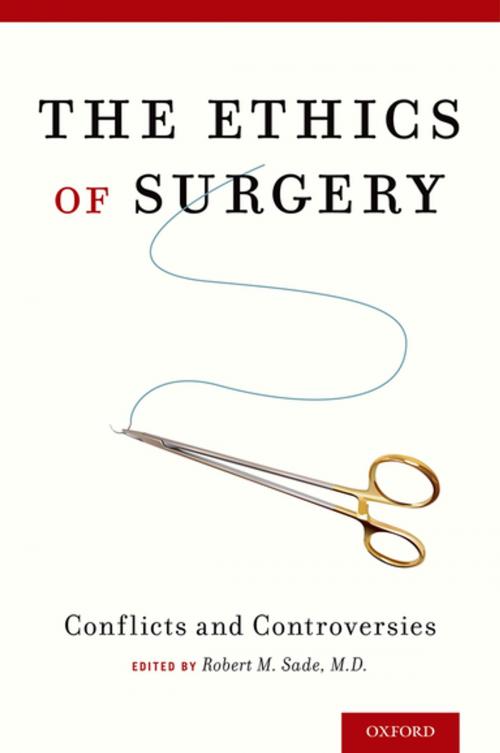The Ethics of Surgery
Conflicts and Controversies
Nonfiction, Health & Well Being, Medical, Reference, Ethics, Surgery| Author: | ISBN: | 9780190258009 | |
| Publisher: | Oxford University Press | Publication: | January 13, 2015 |
| Imprint: | Oxford University Press | Language: | English |
| Author: | |
| ISBN: | 9780190258009 |
| Publisher: | Oxford University Press |
| Publication: | January 13, 2015 |
| Imprint: | Oxford University Press |
| Language: | English |
According to popular belief, technical skill is far more important for surgeons than thoughtful deliberation. Nothing could be further from the truth. Although surgeons must sometimes make decisions rapidly on the basis of incomplete evidence and must respond to unexpected catastrophes in the operating room rapidly, those events are intermittent - most of the time surgeons deliberate on diagnostic problems and thoughtfully manage postoperative care, which is often intellectually challenging. The relationship of surgeons with their patients is, in a real sense, far more intimate and trusting than that of any other professional, a claim that is supported by the fact that patients surrender their bodies to their surgeons in a state of total helplessness and vulnerability when they undergo anesthesia. Because of that responsibility, no other professional group has a greater sense of dedication to the welfare of their patients than surgeons. Surgical culture is deeply steeped in ethics, and surgeons confront and resolve ethical dilemmas as much or more than most other professionals, although they often may not recognize the situations they resolve are problems in ethics - they are just part of the daily routine. This book is a compendium of articles from the recent surgical literature that address ethical issues chosen by surgeons because they are controversial and pertinent to the practice of surgery. The reader will not find a great deal of sophisticated dissection of fine philosophical distinctions in these discussions of ethical conflicts and controversies in surgery. Instead, they will discover differing viewpoints from thoughtful essayists, mostly surgeons, whose feet are firmly in contact with the ground and who have extensive experience in the real world of surgery, medicine, and law.
According to popular belief, technical skill is far more important for surgeons than thoughtful deliberation. Nothing could be further from the truth. Although surgeons must sometimes make decisions rapidly on the basis of incomplete evidence and must respond to unexpected catastrophes in the operating room rapidly, those events are intermittent - most of the time surgeons deliberate on diagnostic problems and thoughtfully manage postoperative care, which is often intellectually challenging. The relationship of surgeons with their patients is, in a real sense, far more intimate and trusting than that of any other professional, a claim that is supported by the fact that patients surrender their bodies to their surgeons in a state of total helplessness and vulnerability when they undergo anesthesia. Because of that responsibility, no other professional group has a greater sense of dedication to the welfare of their patients than surgeons. Surgical culture is deeply steeped in ethics, and surgeons confront and resolve ethical dilemmas as much or more than most other professionals, although they often may not recognize the situations they resolve are problems in ethics - they are just part of the daily routine. This book is a compendium of articles from the recent surgical literature that address ethical issues chosen by surgeons because they are controversial and pertinent to the practice of surgery. The reader will not find a great deal of sophisticated dissection of fine philosophical distinctions in these discussions of ethical conflicts and controversies in surgery. Instead, they will discover differing viewpoints from thoughtful essayists, mostly surgeons, whose feet are firmly in contact with the ground and who have extensive experience in the real world of surgery, medicine, and law.















